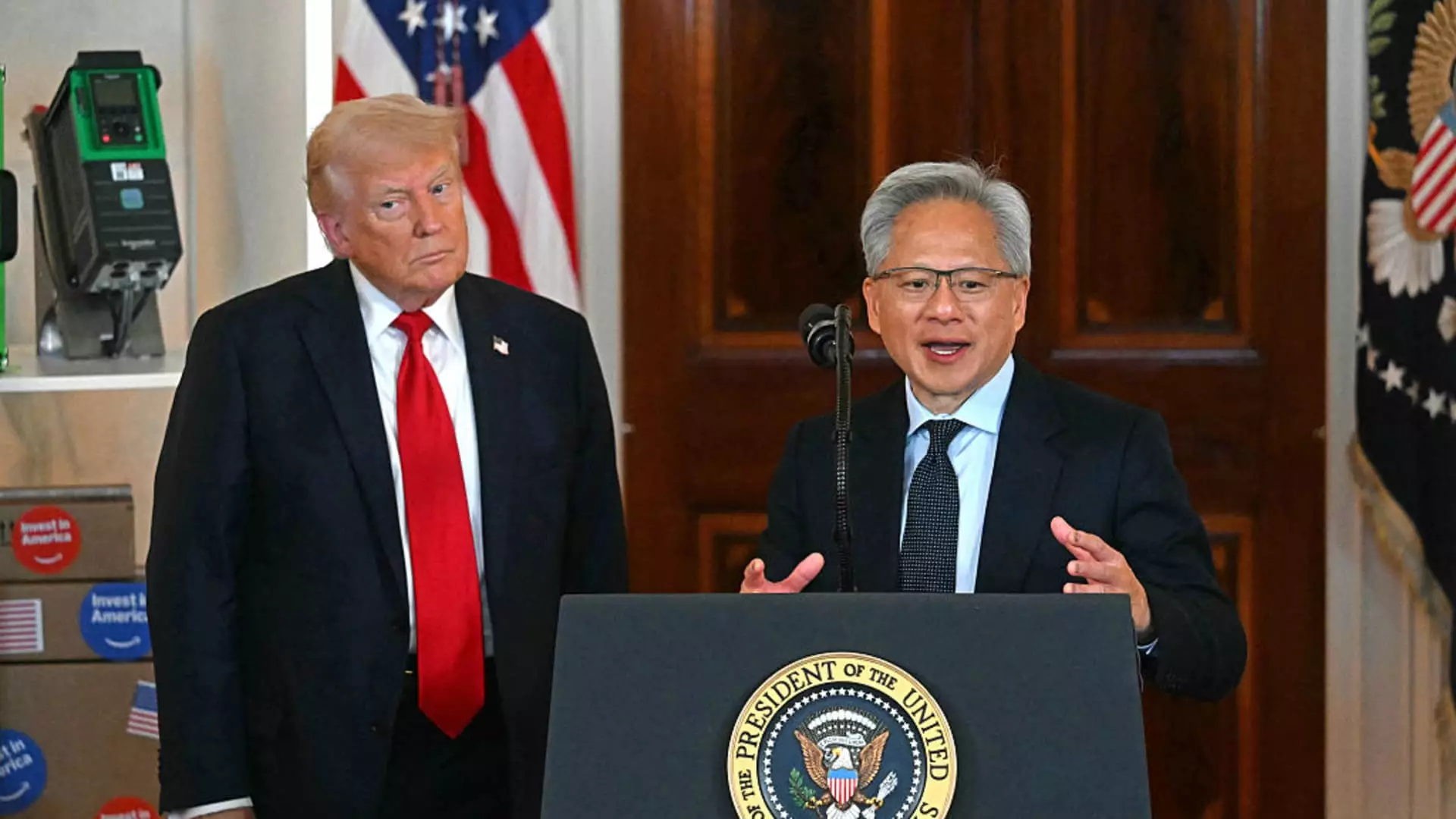In recent developments, U.S. policymakers have grappled with a complex dilemma: how to foster innovation and economic growth without compromising national security. The decision to permit American tech giants like Nvidia and AMD to sell advanced AI chips to China, with a revenue-sharing deal to the U.S. government, epitomizes this tension. While proponents argue that such arrangements boost economic ties and promote global technological leadership, critics contend that they inadvertently weaken America’s strategic position. This duality reflects a broader challenge—balancing the benefits of stewardship in cutting-edge technology against the peril of empowering potential adversaries.
The congressional skepticism, as voiced by six Senate Democrats, highlights a core concern: that allowing these sales may erode America’s competitive edge in the global tech race. Historically, U.S. dominance in scientific innovation has relied heavily on restricting access to critical technologies. By negotiating terms that resemble a commission—where the government takes a 15% cut—the risk is that vital security-sensitive protocols could be compromised, intentionally or unintentionally. Such revenue-sharing arrangements might set a dangerous precedent, incentivizing short-term economic gains over long-term national interests.
The Military and Security Implications of AI Chip Exports
A primary argument against these sales hinges on the potential military ramifications. AI chips like Nvidia’s H20 and AMD’s MI308 are designed to power the most sophisticated systems, including the ones used in defense applications. Critics express concern that enabling China to acquire these components could fortify its military capabilities, potentially upsetting the geopolitical balance. Even though Nvidia and AMD deny that their chips bolster military systems directly, the broader risk of technological diffusion remains alarming.
This suspicion is rooted in the inherent dual-use nature of advanced AI technology. Chips intended for commercial applications can often be repurposed for enhancing military systems, including autonomous weapons or surveillance. The argument is that the U.S. should exercise utmost caution in exporting such technology to nations that might challenge American dominance or threaten allied security. Ignoring this could allow China to leapfrog technological boundaries and level the playing field—at a time when America’s technological supremacy is already under pressure from emerging powers.
Economic Outreach Versus Strategic Supremacy
It’s easy to see the allure of expanding the market for U.S. technology to China, especially when Chinese firms are rapidly becoming major players in artificial intelligence and semiconductors. However, this strategy may be shortsighted, as it undermines the very foundations of America’s global technological leadership. Allowing companies like Nvidia and AMD to sell chips, with the government taking a cut, risks turning national security into a bargaining chip—something executives and policymakers alike should approach with trepidation.
Furthermore, the notion that such sales do not confer military advantages underestimates the interconnectedness of modern technology. Semiconductors are not isolated components but part of complex supply chains that underpin both economics and defense. Allowing China access to advanced chips could provide it with tools to develop and enhance its own military systems, thereby threatening U.S. safety and strategic interests in the long run. This risks a scenario where economic engagement is mistaken for strategic partnership, with potentially catastrophic consequences.
The Political Discourse and Future Implications
The debate has also become a proxy battleground for broader ideological divides. Democrats raising alarms about security and innovation compete against an administration eager to promote economic openness and maintain competitiveness in the global tech landscape. White House officials attack critics, framing their concerns as outdated or disconnected from current realities. Such rhetorical battles divert attention from the urgent necessity for a coherent and secure long-term strategy.
Moreover, China’s less-than-welcoming response illustrates the geopolitical complexities at play. Reports suggest that China is restricting orders for these chips, signaling a reluctance to accept U.S.-made technologies unilaterally. The implications are clear: the U.S.’s efforts to foster goodwill and open markets might be thwarted by strategic practices on the ground, emphasizing that technological diplomacy must be paired with robust security considerations.
Ultimately, this episode underscores a fundamental truth: in the high-stakes realm of artificial intelligence and chip technology, there are no easy choices. The temptation to prioritize immediate economic gains must be weighed against the deeper, more enduring needs of national security. Sovereignty in this domain hinges on discernment, prudence, and, perhaps most critically, a willingness to reject deals that undermine the very foundation of American technological leadership.


Leave a Reply